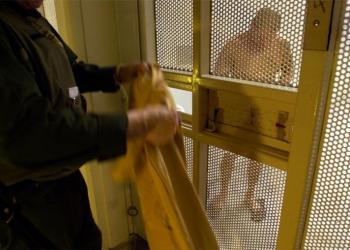
Prison Visitors’ Strip Searches
Strip searches of visitors to a prison facility must be based upon a reasonable suspicion to believe the visitor is in possession of contraband. A visitor to a prison with a reasonable suspicion to believe that he or she possesses contraband may be subject to a strip search, but only after given the option of leaving the institution/facility grounds without being searched.
Plaintiff Tina Cates’ boyfriend, who she would visit once a week, was incarcerated in Nevada’s High Desert State Prison. On February 19, 2017, she attempted to visit him again. However, prior to this occasion, prison officials had received a tip from “two confidential credible sources” that plaintiff might try to bring drugs into the prison. Based upon this information, Arthur Emling, Jr., a criminal investigator with the Nevada Office of the Inspector General, obtained a search warrant authorizing him to search plaintiff’s “person,” as well as “any vehicles used and registered by Cates to transport herself to High Desert State Prison,” and to seize “any and all illegal controlled substances/narcotics.” However, the warrant did not specifically authorize a visual body cavity strip search of plaintiff’s person, nor did it include authorization to search any cellphones she might have. When plaintiff arrived at the prison on February 19th, she signed a consent-to-search form as she did preparatory to every other visit, agreeing to the “search of (her) person, vehicle and other property which I have brought onto prison grounds.” The form did not mention “strip searches.” Plaintiff believed, as was the normal procedure, that she was agreeing to being patted down only. After signing this form, however, Emling and a female criminal investigator for the Office of the Inspector General (Myra Laurian) approached plaintiff and, without explanation, had her follow them to the prison administration building. Once there, Laurian took plaintiff into a bathroom where she was “told” her to remove her clothing, including her bra and underwear. She was also instructed to remove a tampon she was using at the time. She was then “ordered” (as opposed to “asked”) to “bend over and spread her cheeks.” Believing that she did not have a choice, plaintiff complied with Laurian’s instructions. No drugs were found. Allowed to dress again, plaintiff was not provided with a new Tampon, but given instead some “toilet paper to shove down there.” Plaintiff was never told she might have a choice in submitting to the above procedure or that she was free to leave. Following this strip search, plaintiff was “detained” (or, at least, she felt like she was being detained) in the prison administration building while Emling took her car keys and searched her car. Finding only a cellphone, but no drugs, Emling took plaintiff’s cellphone back to the admin building and asked her for permission to search it. Plaintiff declined. Based upon this refusal, plaintiff was not allowed to visit her boyfriend. Also, her visiting privileges at the prison were terminated. The search warrant Emling had obtained was never executed. Plaintiff subsequently sued Emling, Laurian, and others, in federal court, pursuant to 42 U.S.C. § 1983. The federal district (trial) court granted the civil defendants’ motion for summary judgment. Plaintiff appealed.





